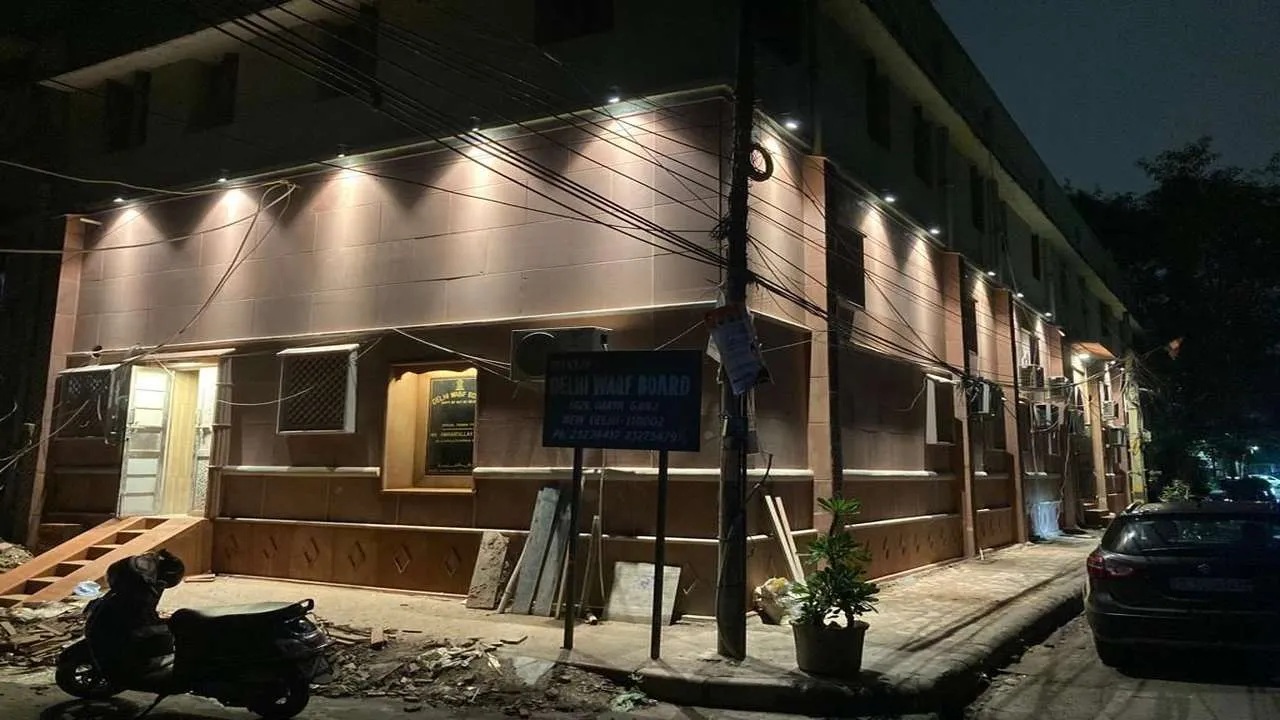Published Apr 22, 2025 | 4:53 PM ⚊ Updated Apr 22, 2025 | 4:53 PM

Wakf boards in India were first constituted for the administration of the properties during the British administration in 1913, and the Mussalman Wakf Act 1923 was enacted for the smooth administration of these institutions. (Facebook/Delhi Waqf Board)
Synopsis: The 2025 amendment restores the judiciary’s authority, with lower and high courts now adjudicating Waqf disputes, ensuring fair access to justice for landowners, claimants, and communities. Authority to determine Waqf property status shifts to district collectors, introducing impartial evaluation.
The passage of the Waqf (Amendment) Bill, 2025, by the Indian Parliament is a landmark reform in the nation’s legislative journey.
Introduced by Minister for Minority Affairs Shri Kiren Rijiju on 8 August 2024, and refined through a Joint Parliamentary Committee, the Bill tackles judicial overreach, administrative opacity, and misuse of land laws under religious governance.
By correcting the 2013 Waqf Act amendments enacted by the Congress-led government, it reaffirms India’s commitment to justice, equity, and transparency, core to its constitutional framework.
The 2013 amendments empowered Waqf Boards and tribunals to unilaterally designate properties as Waqf assets, bypassing judicial processes. This triggered widespread disputes and eroded trust, particularly among landowners facing opaque tribunals.
The 2025 amendment restores the judiciary’s authority, with lower and high courts now adjudicating Waqf disputes, ensuring fair access to justice for landowners, claimants, and communities. Authority to determine Waqf property status shifts to district collectors, introducing impartial evaluation.
Land donations to Waqf institutions must be registered with the collector, creating transparent records. These reforms curb arbitrary claims, restore legal confidence, and protect citizens’ rights against unchecked administrative power.
The Bill transforms Waqf Board governance, historically male-dominated and influenced by political elites within the Muslim community. It mandates Muslim women’s inclusion, promoting gender equity, and allows neutral observers from other communities, aligning with India’s pluralistic ethos and fostering diverse decision-making.
State governments can now audit Waqf Board records and finances. In Telangana, the Waqf Board controls over 77,000 acres, often unaccounted for due to weak oversight. Mandatory audits ensure responsible asset management, directing revenues to community welfare and preventing misuse, a vital step for accountability and public trust.
Telangana’s Waqf challenges are rooted in its legal history, shaped by Hyderabad State’s 1948 integration into India. Waqf properties, previously managed under the Nizam’s endowments, came under the 1954 Waqf Act, but ambiguous land records and overlapping tenures sparked disputes, especially in urbanizing areas like Hyderabad.
The 2013 amendments worsened this by empowering Waqf Boards without judicial checks, leading to a surge in litigation. In 2018, the Telangana High Court rejected a Waqf claim over 1,100 acres near Shamshabad Airport, citing insufficient evidence, a trend echoed in rulings on HITEC City and Gachibowli. These judicial interventions highlight the need for the 2025 amendment’s clarity, addressing historical legislative gaps that fueled conflicts and delayed development.
Telangana exemplifies the fallout of unchecked Waqf powers. In Medchal-Malkajgiri, circulars banned property transactions across 750 acres claimed by the Waqf Board, impacting 20,000 households and 100 colonies.
These opaque restrictions disrupted lives and stalled urban growth. High-profile zones like Shamshabad Airport (1,100 acres), Gachibowli, Puppalaguda, HITEC City, and Kohir in Sangareddy (3,000 acres) face prolonged litigation.
Iconic properties, including Marriott and Park Hyatt hotels, have been entangled, with courts rejecting many claims, yet the economic toll on real estate and investor confidence persists. In Zaheerabad, 13,000 acres were converted to Waqf properties, often against farmers’ will. These farmers, fighting legal battles to reclaim ancestral lands, underscore the human cost of unaccountable governance, highlighting the urgency of the bill’s reforms to restore fairness.
The Bill’s significance extends nationwide. Waqf Boards manage over 600,000 properties, spanning millions of acres, according to the Ministry of Minority Affairs. Weak records have enabled mismanagement, encroachments, and illegal transfers, depriving communities of intended benefits.
The 2006 Sachar Committee noted inefficiencies, with Waqf properties underutilized for welfare. The 2025 amendment introduces digital record-keeping and centralized monitoring, aligning governance with modern standards and addressing systemic flaws.
In Uttar Pradesh, Karnataka, and Andhra Pradesh, Waqf claims over temples, infrastructure, and private properties have fueled controversies. Judicial oversight and transparency mandated by the bill ensure equitable resolutions, fostering trust and social cohesion across communities.
Under Prime Minister Narendra Modi, the government upholds justice, equality, and the rule of law. The Waqf (Amendment) Bill, 2025, dismantles appeasement policies that prioritized narrow interests over legal integrity. It is pro-accountability, pro-equity, and pro-law, ensuring no institution supersedes the Constitution.
The BJP affirms that land ownership and judicial fairness transcend religious identities. This reform ensures citizens’ rights are not sacrificed under religious pretexts. Disputes must be settled in courtrooms, not boardrooms, with all institutions accountable to the law.
The Waqf (Amendment) Bill, 2025, corrects historical wrongs, empowering courts, enhancing oversight, and promoting inclusivity. In Telangana, where legal history underscores reform’s necessity, and across India, it offers hope to those affected by arbitrary Waqf claims, fostering equitable development. This legislation reaffirms that governance must prioritize the common good, embodying India’s democratic spirit and unwavering pursuit of justice for all.
(Dr G Manohar Reddy is State Vice President of the Bharatiya Janata Party in Telangana. Views are personal. Edited by Majnu Babu).

